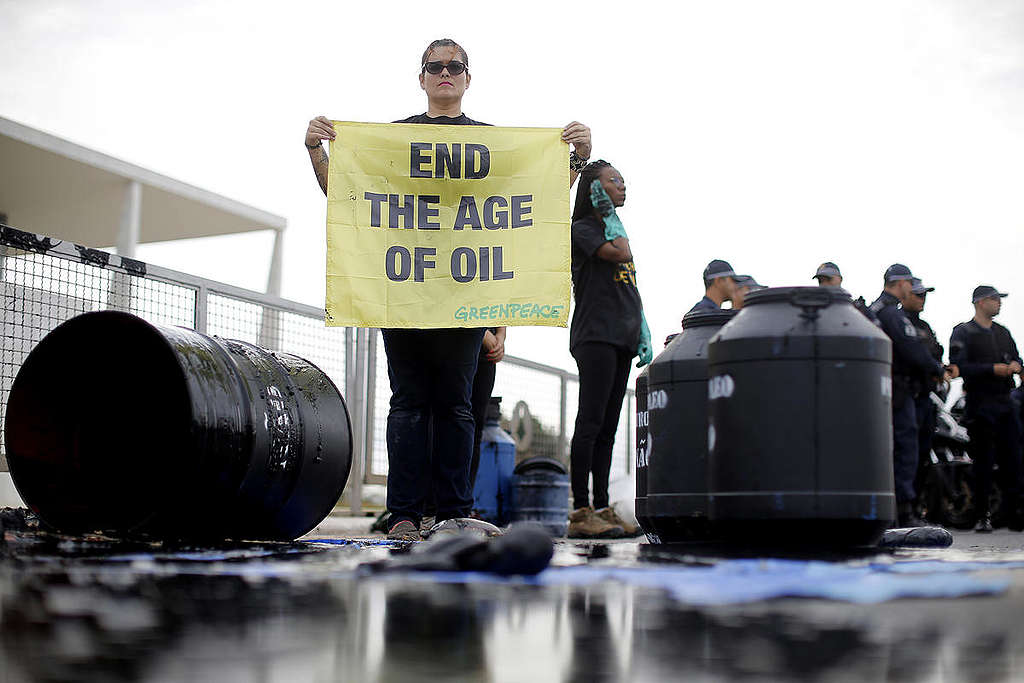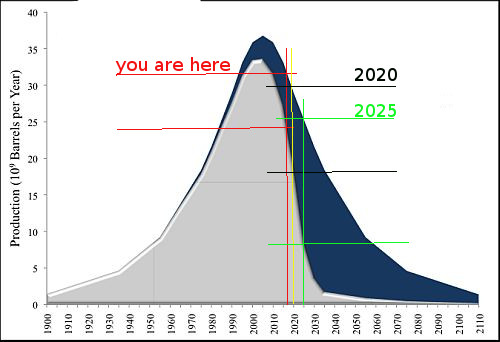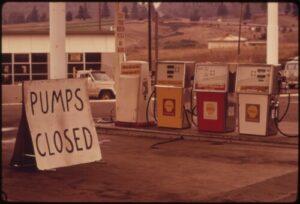(Translated from Spanish by Amelia Burke, originally published in two parts.)
When someone calls into question the existance of a peak in the production (extraction) of a non-renewable resource, which oil is, you should invite them to study carefully the curves of the Energy Export Databrowser. This Databrowser is formed using data from British Petroleum’s annual energy statistics. If necessary, round off with the data from the Hallock et al. document ”Forecasting the limits to the availability and diversity of global conventional oil supply: Validation” (Energy 64, 2014, 130-153). Then ask them to explain why —if everything depends on our human ingenuity and anything is possible given the amount money which is put into it, and given the God of Technology— there are already 50 oil producing countries that have exceeded their peak of production and are carrying on downhill. That is, except (temporarily) the U.S.A., specialists in rooting around in the filth of shale, with lots of technology and fabricated money.
And for those in our still relatively comfortable country who begin to worry that there might be actually be a peak and wonder what it could mean and when we think it might happen, I would confront them with a vision which is not quite so eurocentric as the one we are used to. I would invite them, with those calculations at hand, to do a little adding up in order to try and clarify it for themselves, based on counting the number of post-peak producer countries. Let them try by themselves to sketch out a possible date for the peak, or a slightly undulating plateau perhaps. I would tell them that more than 50 oil producing countries are already in decline, visible decline or terminal oil-bearing decline. In other words, the when, is something now in the past for no less than 50 countries…
…click on the above link to read the rest of the article…





 Preface. This is a book review of Howard Bucknell’s Energy and the National Defense. University of Kentucky Press.
Preface. This is a book review of Howard Bucknell’s Energy and the National Defense. University of Kentucky Press.
 ry long way away. I still thought at the time that renewables would ‘save us’, or at the very least that energy efficiency would be taken up on a massive scale. None of those things happened.
ry long way away. I still thought at the time that renewables would ‘save us’, or at the very least that energy efficiency would be taken up on a massive scale. None of those things happened.
 The world stands on the cusp of an oil supply crisis. Years of insufficient investment in offshore mega-projects combined with the end of U.S. shale hyper growth and a recent shift by global supermajors to preferentially invest in alternative energy over traditional hydrocarbons have resulted in an oil industry that lacks the ability to meaningfully grow its production in the years ahead.
The world stands on the cusp of an oil supply crisis. Years of insufficient investment in offshore mega-projects combined with the end of U.S. shale hyper growth and a recent shift by global supermajors to preferentially invest in alternative energy over traditional hydrocarbons have resulted in an oil industry that lacks the ability to meaningfully grow its production in the years ahead.
 Fig 1: FPSO (Floating Production Storage Offloading) Petrojarl Foinhaven, 250 m long, 280 kb storage
Fig 1: FPSO (Floating Production Storage Offloading) Petrojarl Foinhaven, 250 m long, 280 kb storage Fig 2: Foinhaven oil production history
Fig 2: Foinhaven oil production history

